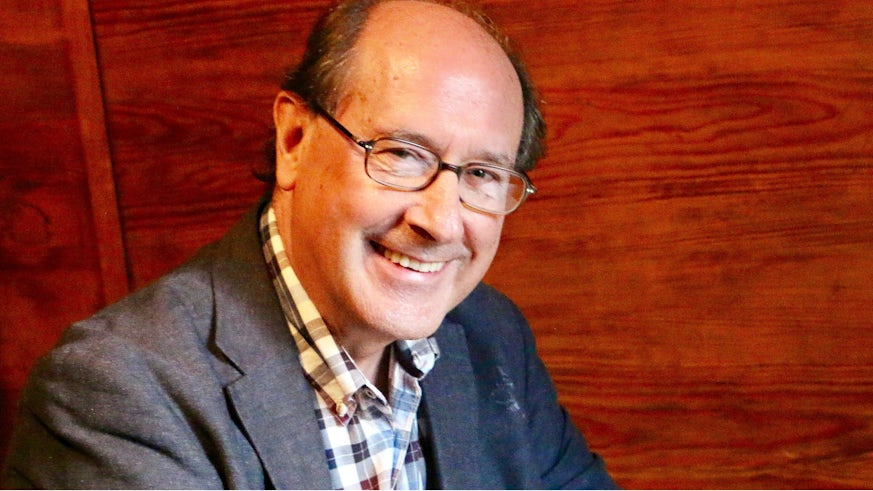Top US honour for Cardiff scientist
14 May 2019

A Cardiff University astronomer who has dedicated his life to opening up the field of gravitational wave astronomy has been awarded with America’s top scientific honour.
Professor Bernard Schutz, from Cardiff University’s School of Physics and Astronomy, has been elected to the National Academy of Sciences (NAS) in recognition of his distinguished and continuing achievements in his field.
Membership of the NAS is a widely accepted mark of excellence and is considered one of the highest honours that a scientist can receive.
Professor Schutz’s pioneering work has shown how to extract some of the most important science from the detections of gravitational waves now being made by the Laser Interferometer Gravitational Wave Observatory (LIGO) and the VIRGO interferometer.
Commenting on the news, Professor Schutz said: “My election to the US National Academy of Sciences is an immense honour, and it was also a complete surprise, particularly since I have not worked in my native country since I came to Cardiff in the 1970s.”
Described as ripples in space and time, gravitational waves were first proposed by Albert Einstein over 100 years ago. Einstein proposed that they would be emitted as a consequence of violent cosmic events, such as the collision of two black holes.
In a 1986 paper, Professor Schutz showed how gravitational waves can be used to measure the cosmic expansion rate. He demonstrated that gravitational waves from collisions are “standard sirens” carrying information about their distance to Earth.
Thirty years later, his theory was realised when both gravitational and electromagnetic waves were detected from the same collision by LIGO, Virgo, and a number of astronomical satellites and telescopes, all working together.
Professor Schutz was instrumental in laying the foundation for LIGO in the 1980s and has since been a driving force in the successful development of the collaboration, which now includes over 1,300 scientists from countries across the world.
Thanks to Professor Schutz’s unwavering commitment to LIGO, the collaboration is now uncovering hidden truths about our Universe at an unprecedented rate. Since coming back online last month for a third observation run, LIGO’s detectors have identified a further five candidate signals including the possible collision of a neutron star and a black hole.
“The award is another recognition, from our scientific peers, of the importance of the work that we in Cardiff have been doing with our colleagues around the world to use gravitational waves to explore the hidden parts of the Universe,” Professor Schutz continued.
Born and educated in the USA, Professor Schutz earned his PhD in Physics from the California Institute of Technology in 1971. After postdoctoral work in Cambridge with Stephen Hawking and Martin Rees, and further work at Yale University, he became a lecturer at what was University College Cardiff in 1974. In 1995, by then a Professor, he moved to Germany as one of two founding directors of the Max Planck Institute for Gravitational Physics (Albert Einstein Institute).
Retiring from that post in 2014, he returned to Cardiff University as a Professor in Physics and Astronomy and the first director of the University’s Data Innovation Research Institute. He serves as an Adjunct Professor at the Georgia Institute of Technology in the USA.
Vice-Chancellor Professor Colin Riordan said: “On behalf of everyone at the University, I would like to congratulate Professor Schutz on this outstanding achievement. He should take immense pride in receiving this highly regarded recognition from his peers and joining an elite group of the world’s best scientists.
“For the past 40 years Professor Schutz has played a critical role in developing Cardiff University’s capacity in gravitational wave research, an endeavour that is now bearing fruit as scientists within the Gravity Exploration Institute continue to make remarkably discoveries about the Universe as part of the LIGO collaboration.”
Share this story
It is a friendly, approachable School with a strong commitment to teaching excellence and world class research in physics and astronomy.




